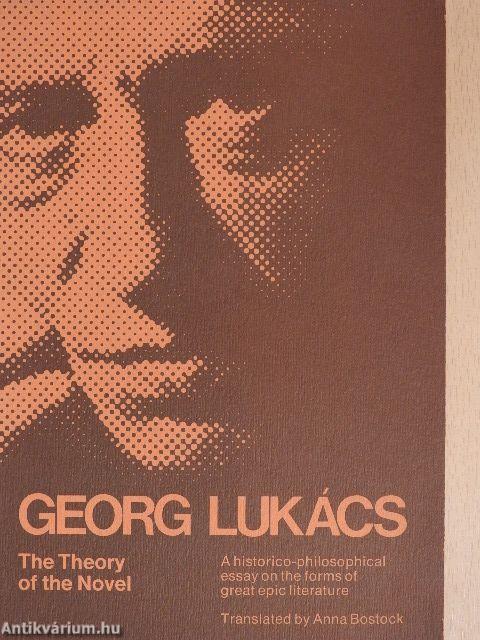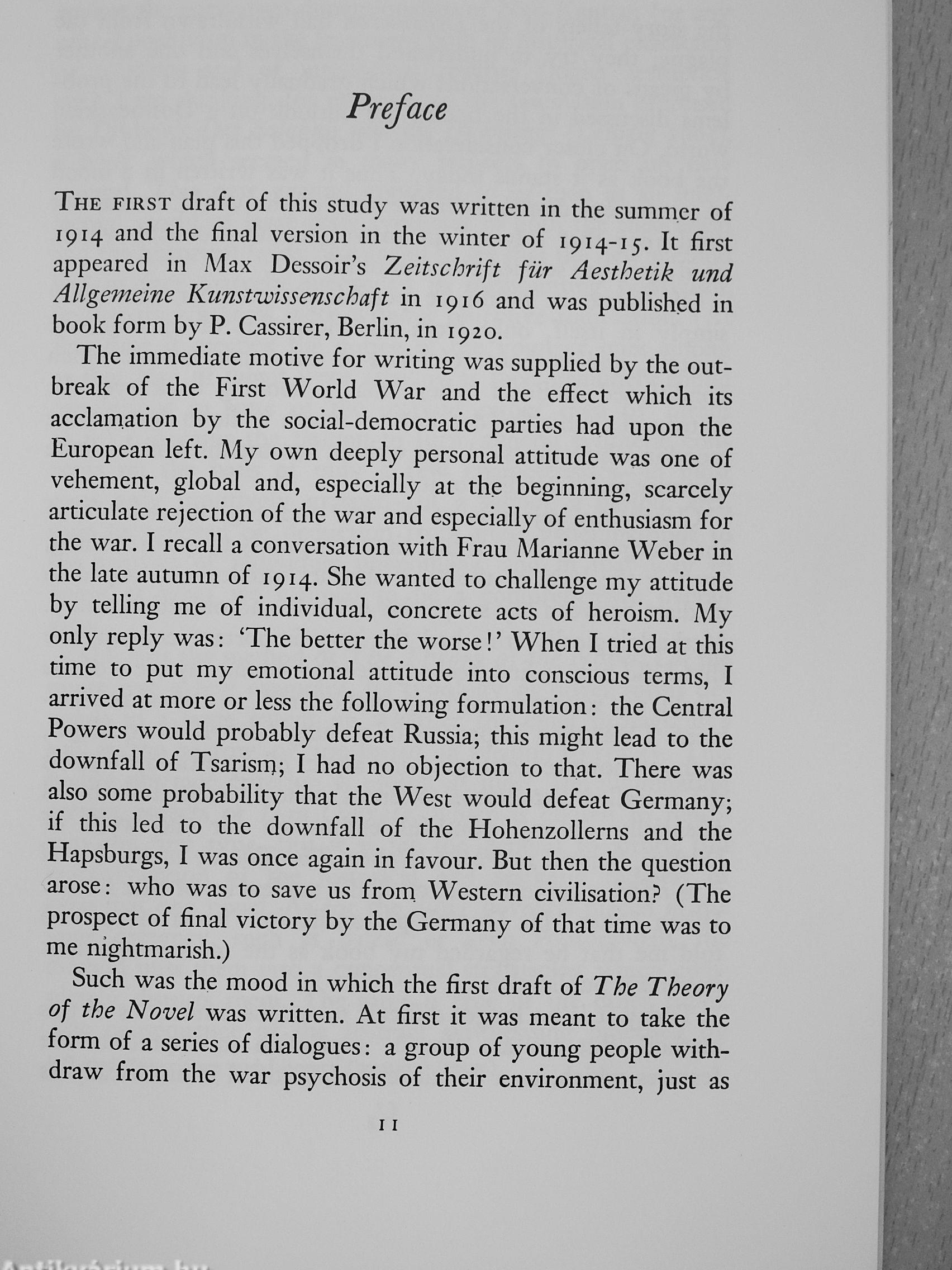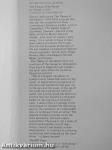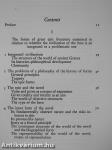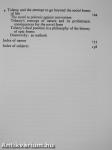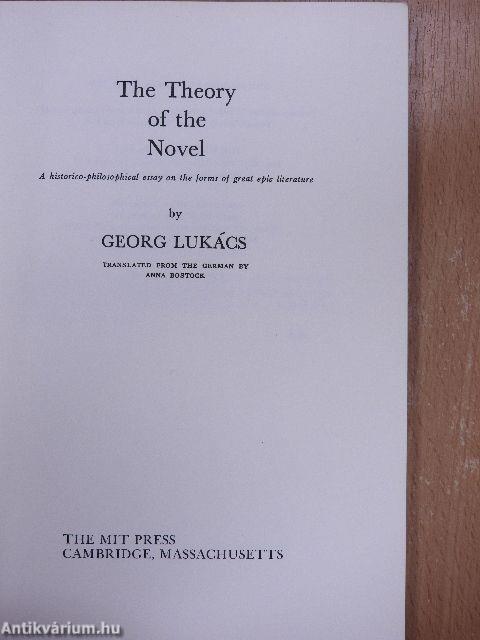1.076.523
kiadvánnyal nyújtjuk Magyarország legnagyobb antikvár könyv-kínálatát

VISSZA
A TETEJÉRE
JAVASLATOKÉszre-
vételek
The Theory of the Novel
A historico-philosophical essay on the forms of great epic literature
| Kiadó: | The MIT Press |
|---|---|
| Kiadás helye: | Cambridge |
| Kiadás éve: | |
| Kötés típusa: | Varrott keménykötés |
| Oldalszám: | 160 oldal |
| Sorozatcím: | |
| Kötetszám: | |
| Nyelv: | Angol |
| Méret: | 20 cm x 14 cm |
| ISBN: | 0-262-62027-8 |
naponta értesítjük a beérkező friss
kiadványokról
naponta értesítjük a beérkező friss
kiadványokról
Előszó
TovábbFülszöveg
MIT 242 POLITICAL SCIENCE The Theory of the Novel by George Lukács translated by Anna Bostock
Georg Lukács wrote The Theory of theNoverm 1914-1915, a period that also saw ttie conception of Rosa Luxennburg's Spartacus Letters, Lenin's Imperialism: The Highest Stage of Capitalism, Spengler's Decline of the West, anö Ernst Bloch's S/O/Wf of Utopia. Like many of Lukacs's early essays, it is a radical critique of bourgeois culture and stems from a specific Central European philosophy of life and tradition of dialectical idealism whose originators include Kant, Hegel, Novalis, Marx, Kierkegaard, Simmel, Weber, and Husserl.
The Theory of the Novel marks the transition of the Hungarian philosopher from Kant to Hegel and was Lukacs's last great work before he turned to Marxism-Leninism.
"The first English translation of Lukacs's early theoretical work on the novel. It begins with a comparison of the historical conditions that gave rise to the epic and the novel. In the age of the novel... Tovább
Fülszöveg
MIT 242 POLITICAL SCIENCE The Theory of the Novel by George Lukács translated by Anna Bostock
Georg Lukács wrote The Theory of theNoverm 1914-1915, a period that also saw ttie conception of Rosa Luxennburg's Spartacus Letters, Lenin's Imperialism: The Highest Stage of Capitalism, Spengler's Decline of the West, anö Ernst Bloch's S/O/Wf of Utopia. Like many of Lukacs's early essays, it is a radical critique of bourgeois culture and stems from a specific Central European philosophy of life and tradition of dialectical idealism whose originators include Kant, Hegel, Novalis, Marx, Kierkegaard, Simmel, Weber, and Husserl.
The Theory of the Novel marks the transition of the Hungarian philosopher from Kant to Hegel and was Lukacs's last great work before he turned to Marxism-Leninism.
"The first English translation of Lukacs's early theoretical work on the novel. It begins with a comparison of the historical conditions that gave rise to the epic and the novel. In the age of the novel the once known unity between man and his world has been lost, and the hero has become an estranged seeker of the meaning of existence. Later, Lukács offers a typology of the novel based on whether the hero struggles for the realization of a meaningful idea, or withdraws from all action. The balance of these extremes forms the third possibility, and each type is exemplified. The book is not a study of artistic technicalities, but of man, history, and art tied closely in their development. It is written in a moving, lyrical style well rendered by the translation."—?./örar/ Journal
The MIT Press
Massachusetts Institute of Technology Cambridge, Massachusetts 02142 Vissza
Témakörök
- Idegennyelv > Idegennyelvű könyvek > Angol > Irodalomtörténet
- Irodalomtörténet > Magyar irodalom > Tanulmány, tanulmánykötet, esszé
- Irodalomtörténet > Irodalomtudomány > Tanulmány, tanulmánykötet
- Irodalomtörténet > Irodalomtudomány > Műnemek > Epika > Regény
- Irodalomtörténet > Irodalomelmélet > Irodalomkritika
Megvásárolható példányok
Nincs megvásárolható példány
A könyv összes megrendelhető példánya elfogyott. Ha kívánja, előjegyezheti a könyvet, és amint a könyv egy újabb példánya elérhető lesz, értesítjük.



